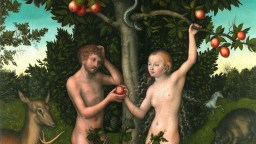Genesis
Don’t settle for comfortable and familiar thoughts, reach for what you don’t know, says Harvard professor Stephen Greenblatt.
▸
7 min
—
with
Scarcely noticed in the Eden story, there lurk fruitful scientific ideas about why biology generated morality.

